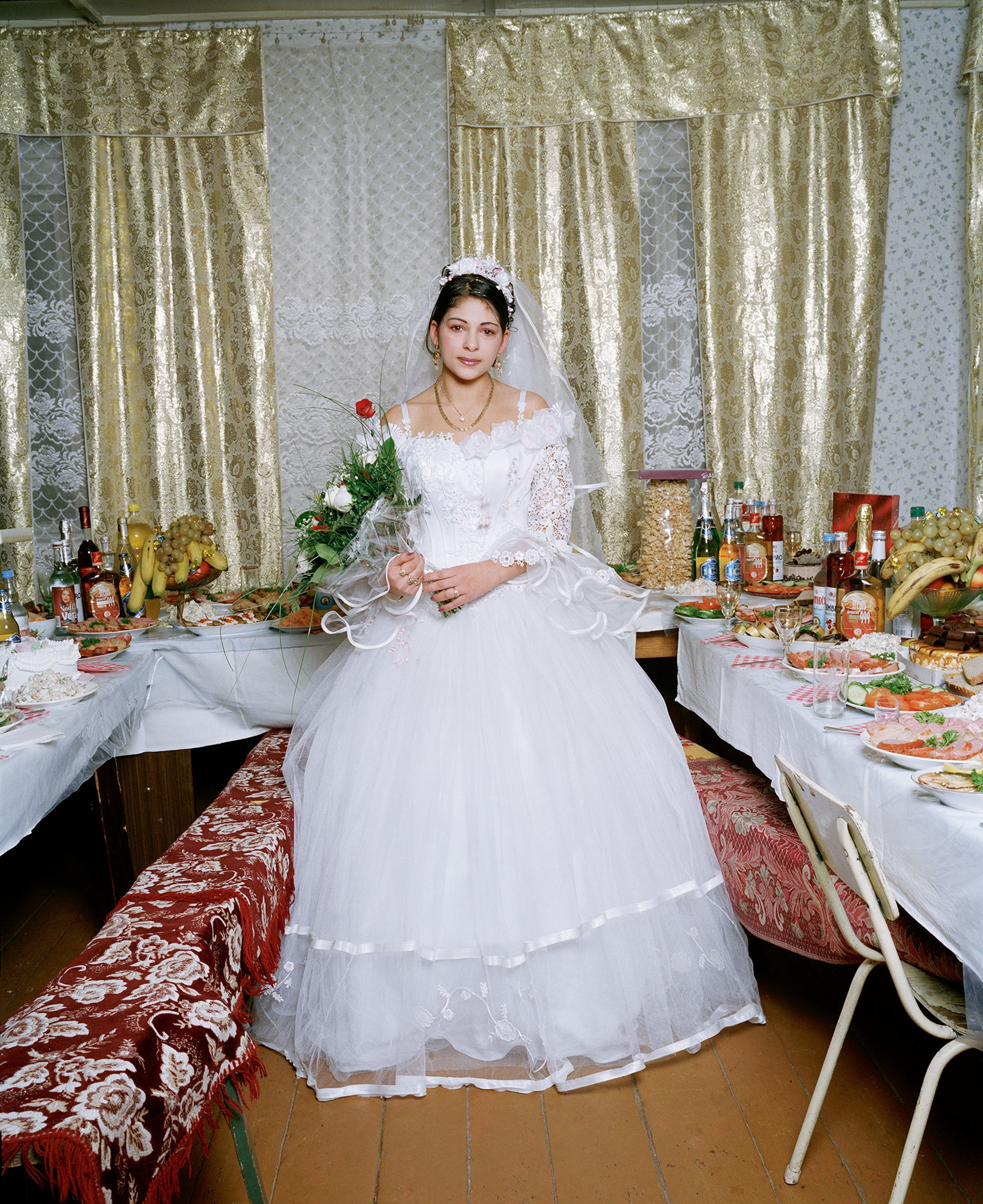All images BAXT © Andrew Miksys
The almost two decades-old photo book is revisited to extend the conversation about a community facing erasure
When photographer Andrew Miksys first travelled to Lithuania in 1998 on a Fulbright Fellowship, he knew little about the country his father had fled as a child. He knew even less about the Roma people who lived there. “I was very kind of naive about it. I just knew I wanted to photograph this after-the-Soviet-Union moment.”
That naïveté became the seed for BAXT, a project that would grow into a lifelong engagement with Lithuania’s Roma community. The first edition of BAXT was self-published in 2007 after nearly a decade of photography. Now, almost twenty years later, Miksys has released a new edition, a continuation rather than a simple reprint. “I called it a second edition,” he says, “but really, it’s a second chapter, what continued.”
The title comes from the Romani word baxt, meaning luck, fate, or fortune. The project’s earliest images emerged from chance encounters, too. “I met a Roma family by accident, really,” he remembers. “I photographed them, not even knowing they were Roma. But when I showed the pictures to Lithuanian friends, they said, ‘You could have been killed. You should stay away from these people.’”
That prejudice and the isolation that accompanied it runs through the work. In the late 1990s, the Roma were largely invisible within Lithuania’s cultural landscape, spoken of mostly in terms of “integration” and “tolerance.” Miksys’ photographs, taken over more than two decades, reveal something else entirely: a vibrant, proud, and self-contained world of homes, gestures, and rituals, under threat from erasure.
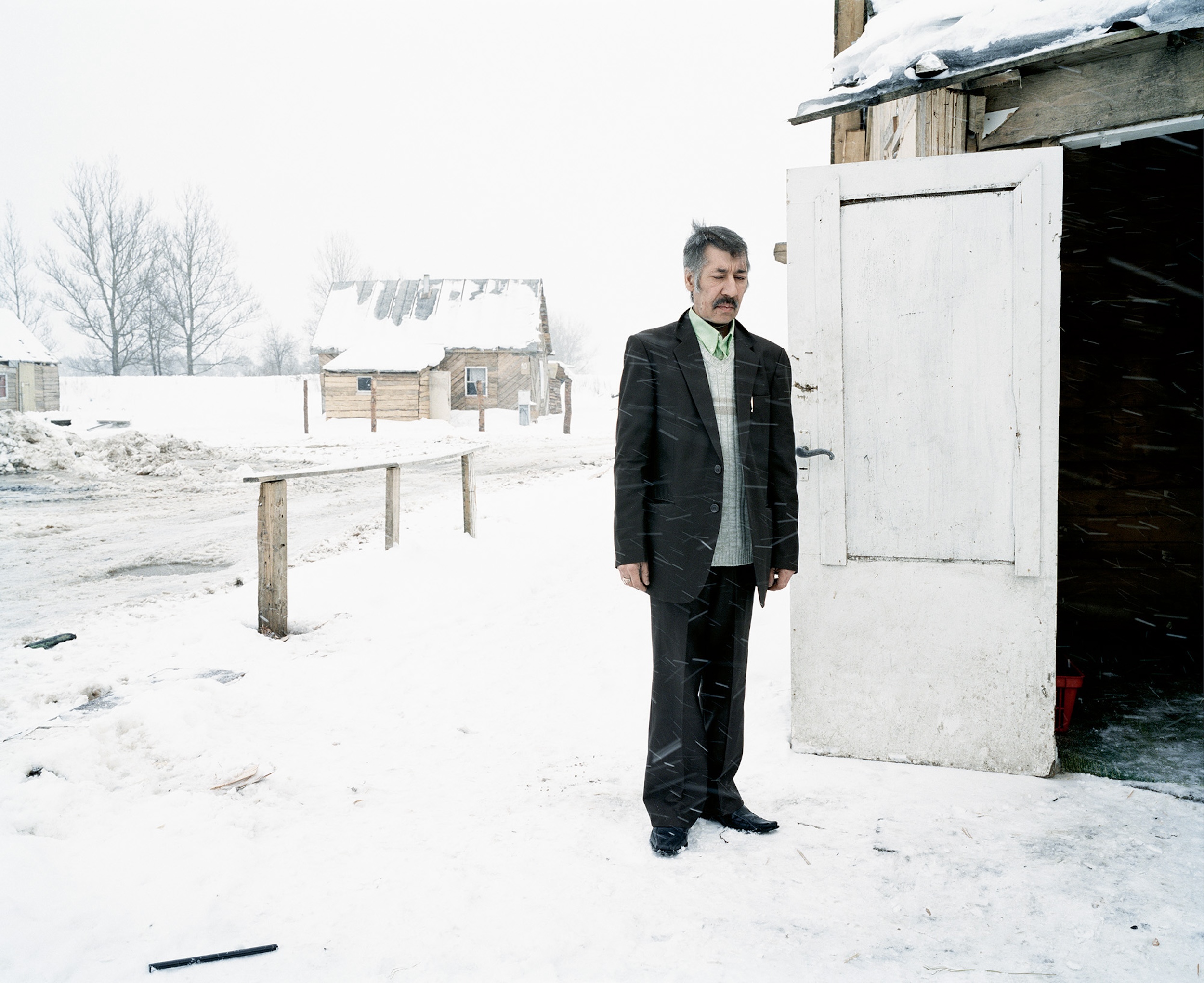
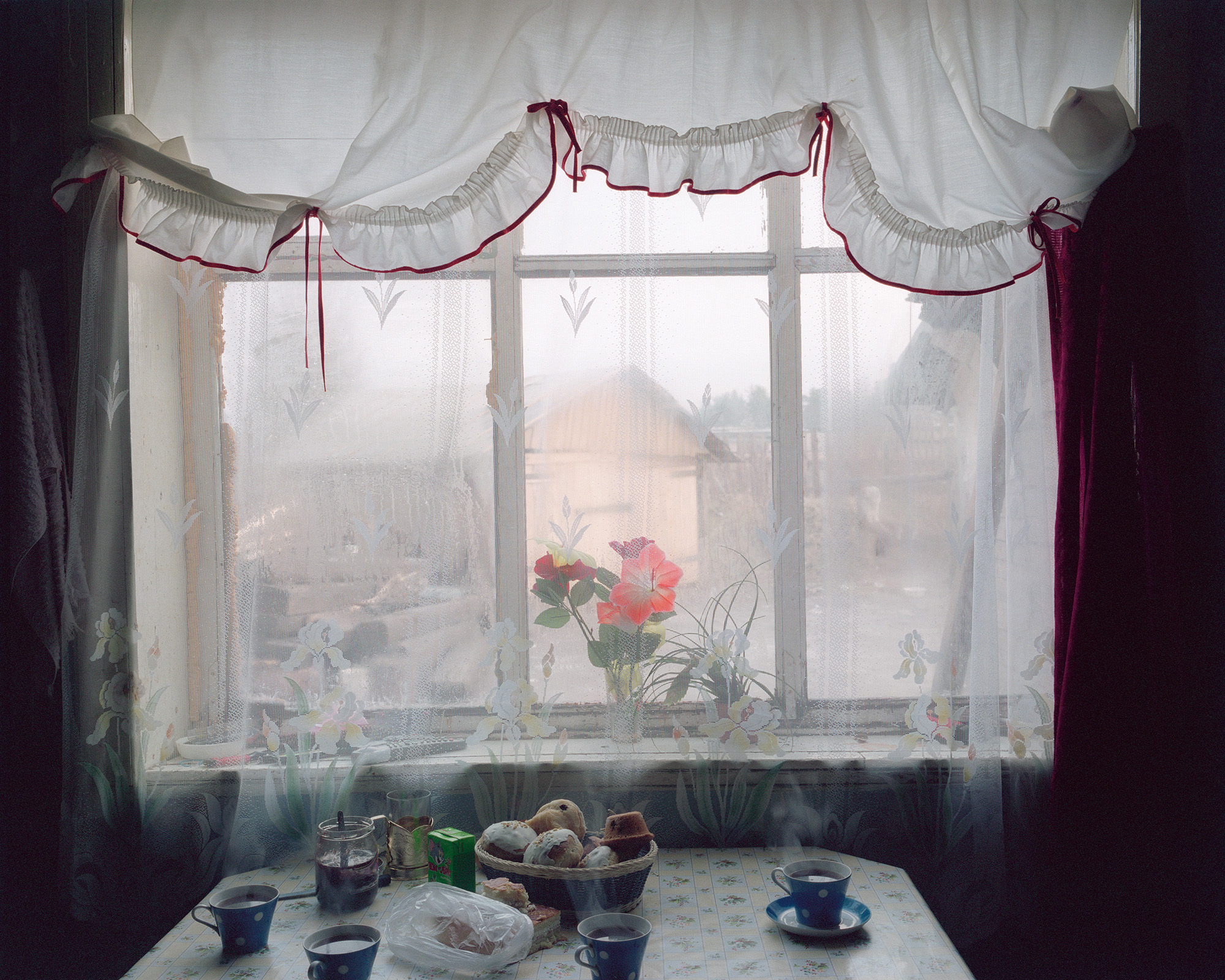
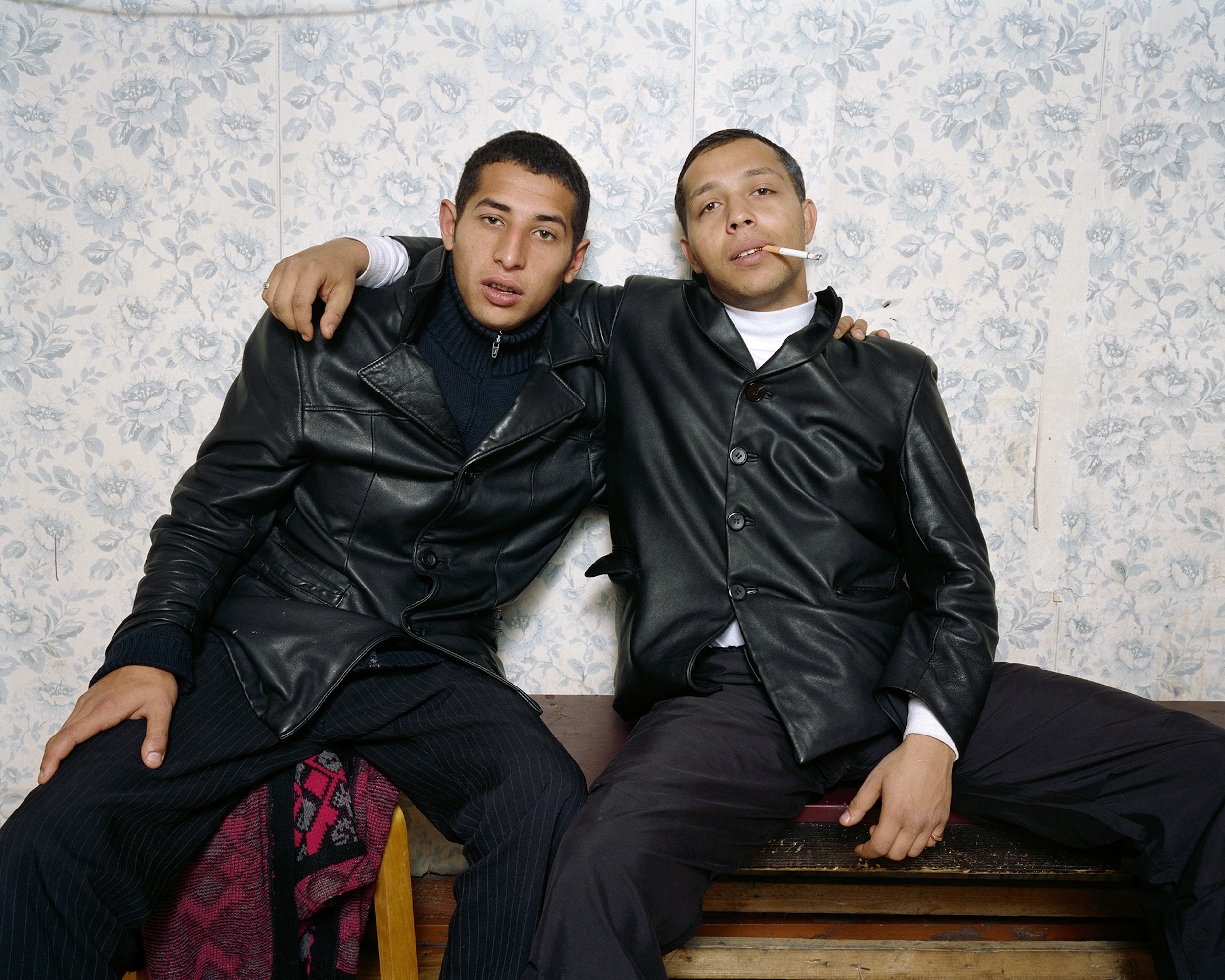
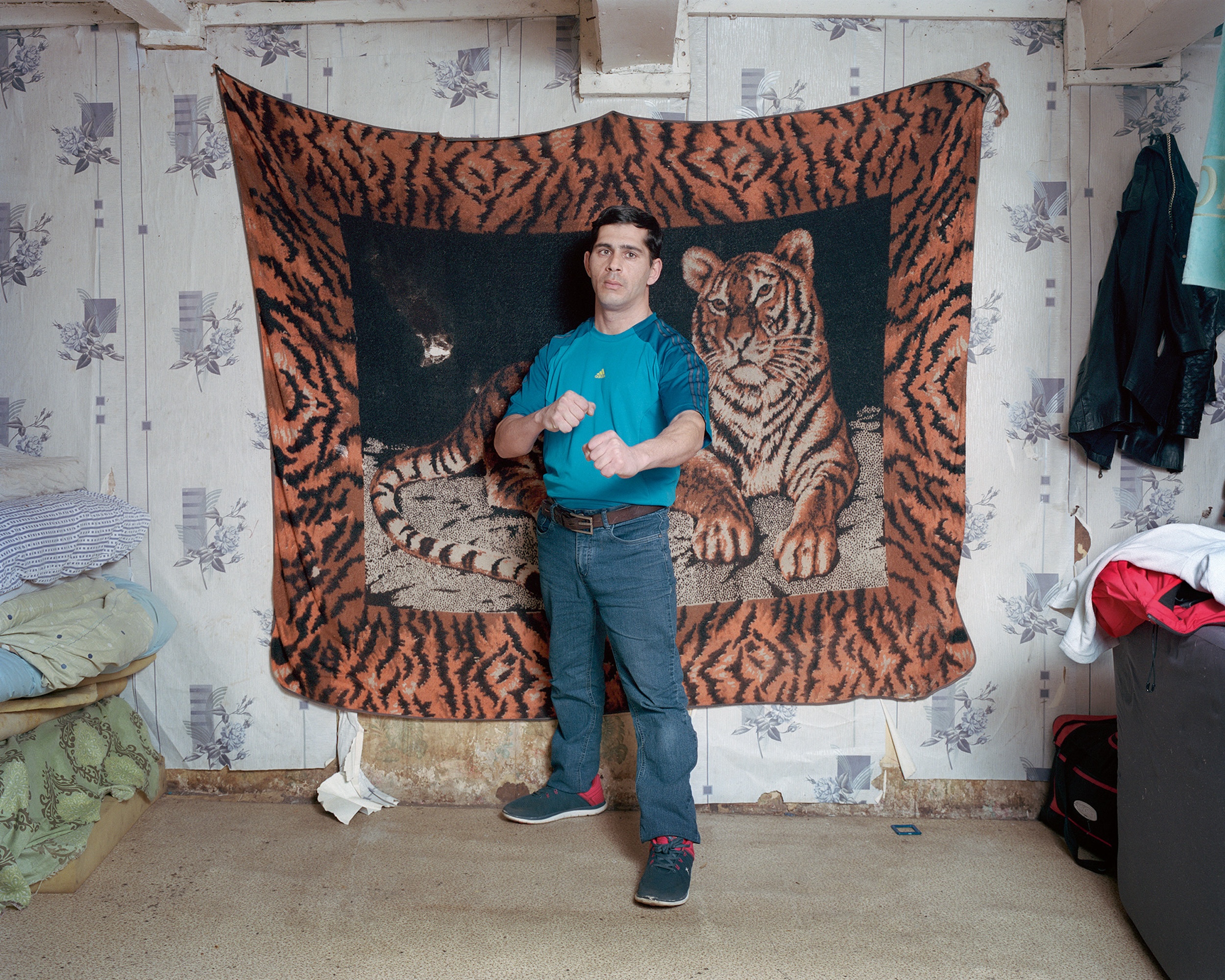
“Bring a print back to people. It’s the best way to open doors”
The images themselves resist easy reading. Miksys’ portraits, often taken with a flash in dim, smoke-thick interiors, show people posing with an intensity that feels both performative and private. “At first, I thought of posing as unnatural,” he admits. “But I realised those pictures were telling me a lot. They’re proud. They’re saying: this is who I am.”
The images are of a proud culture. Resisting patronisation, Miksys allows the community the space to represent themselves how they choose, such as the boxer Spartacus, with his fists up in a loose position, white vest and black bowler hat. “He’s from southern Lithuania and I photographed him in 2006 just before I published my first edition and then in 2019 I went and found him and photographed him again for the second edition.”
Many images are also of domestic spaces and cultural artifacts, such as radios, wallpaper patterns or photo frames. Here unfurls an archive of a Soviet history that was falling apart around the Roma community. Fogged windows, plastic flowers, a coffee cup on a ledge, lace curtains bright with daylight. “Maybe they seem simple,” Miksys says, “but they have a lot of information about Soviet history, about how things look and feel here. The fog, the damp. It’s all part of it.” In one photograph, a single window glows with the warmth of a lived-in room. The image, he notes, was taken in Taboras, in a house that no longer exists. “People thought that neighbourhood was just a horrible place. But when you were inside, they’d invite you for coffee. They became my new community.”
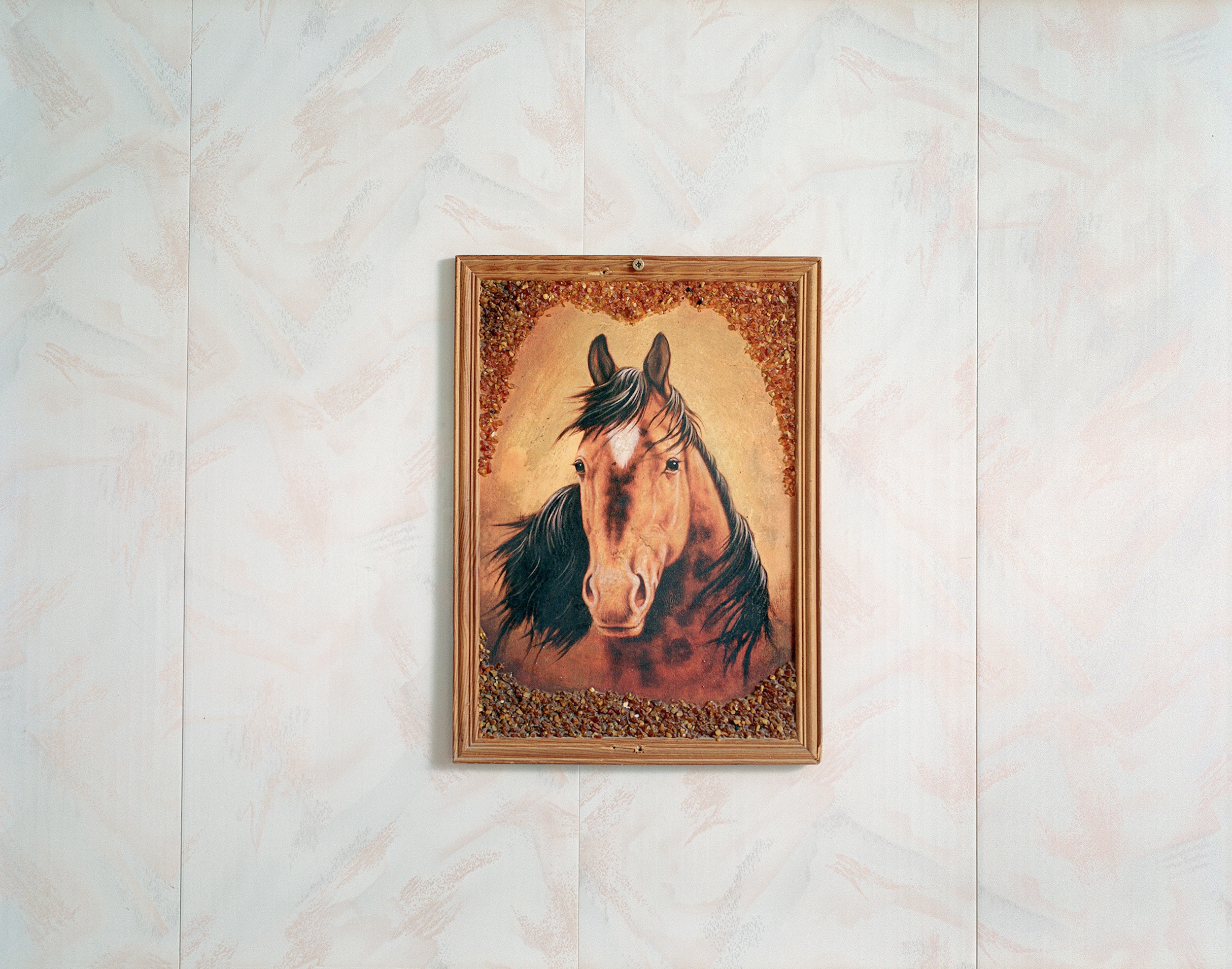
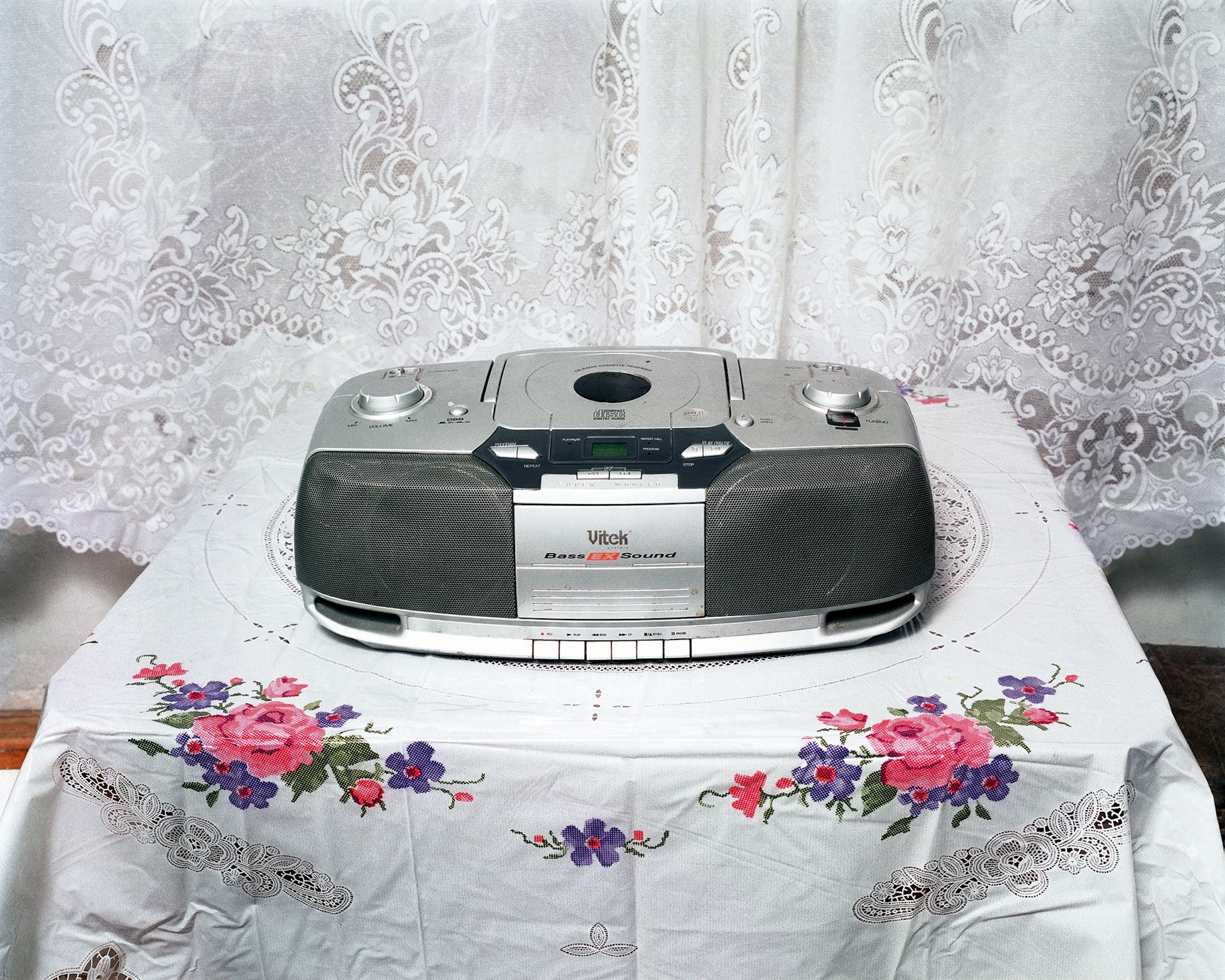
The heart of BAXT lies in Taboras, a long-standing Roma settlement in Vilnius that once housed some 500 people. Over years of visits, Miksys watched the neighbourhood’s houses be torn down one by one. “The city was slowly demolishing it,” he explains. “Some of the homes just burned. I realised I had to continue documenting it, to have something, at least, as a record of what happened.” The last house was destroyed in 2020.
To preserve what could not be saved, Miksys began salvaging materials from the ruins – charred wooden beams, fragments of doors, children’s toys – and incorporating them into sculptural installations. “I had a solo exhibition at MO Museum in Vilnius,” he says. “We built these twelve doors with photographs on both sides, about what home means and what its destruction means.” The installations have since appeared in community spaces too, including a disused synagogue in Žagarė, the small town on the Latvian border where Miksys now lives.
This move from photography into sculpture reflects how BAXT has expanded in scope and intention. “I still feel there is a lot of the erasure of Roma culture and a limiting discussion about it especially with state institutions. I found that very frustrating and I felt I really had to make this document for the history books, at least to have a record of what happened.”
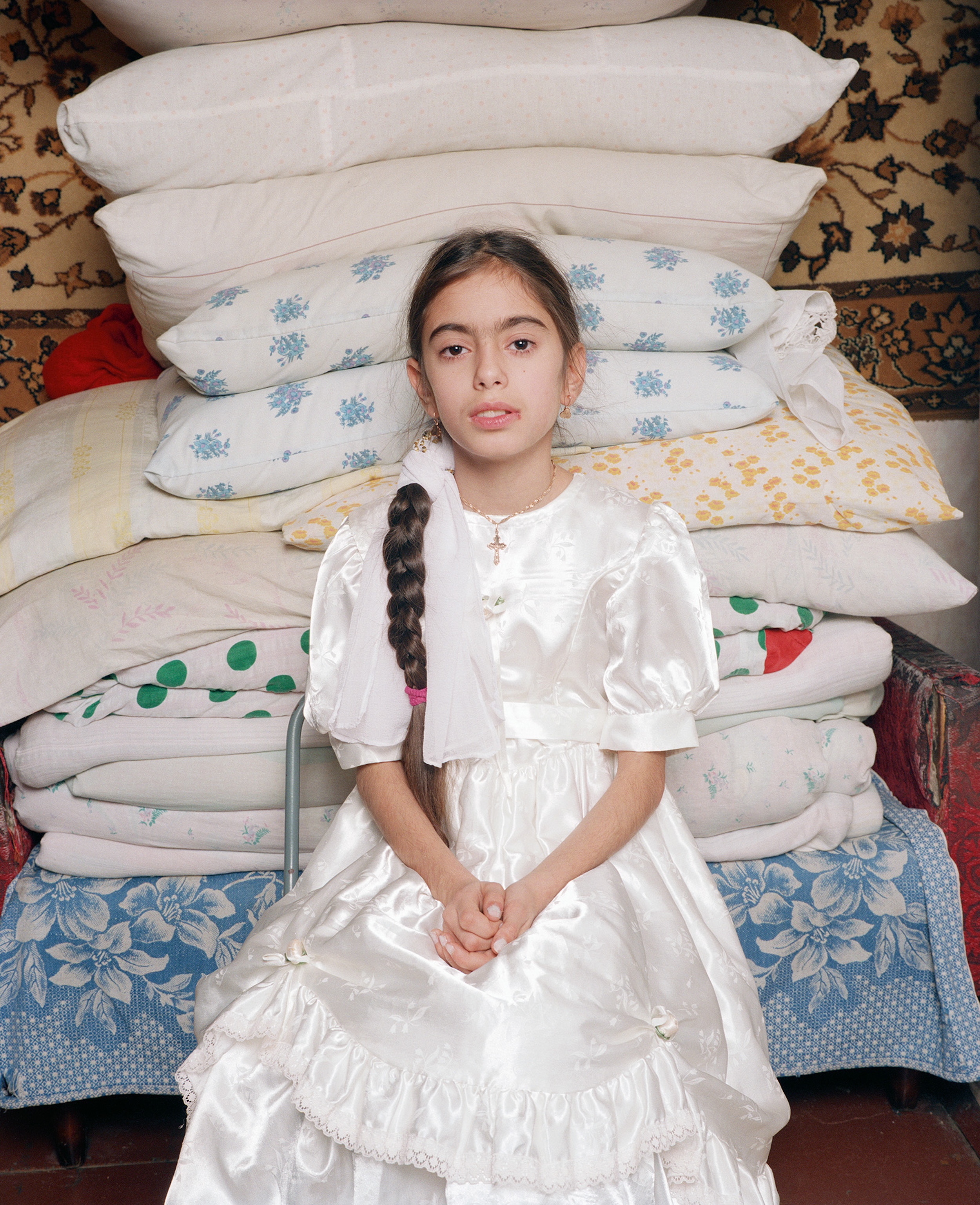
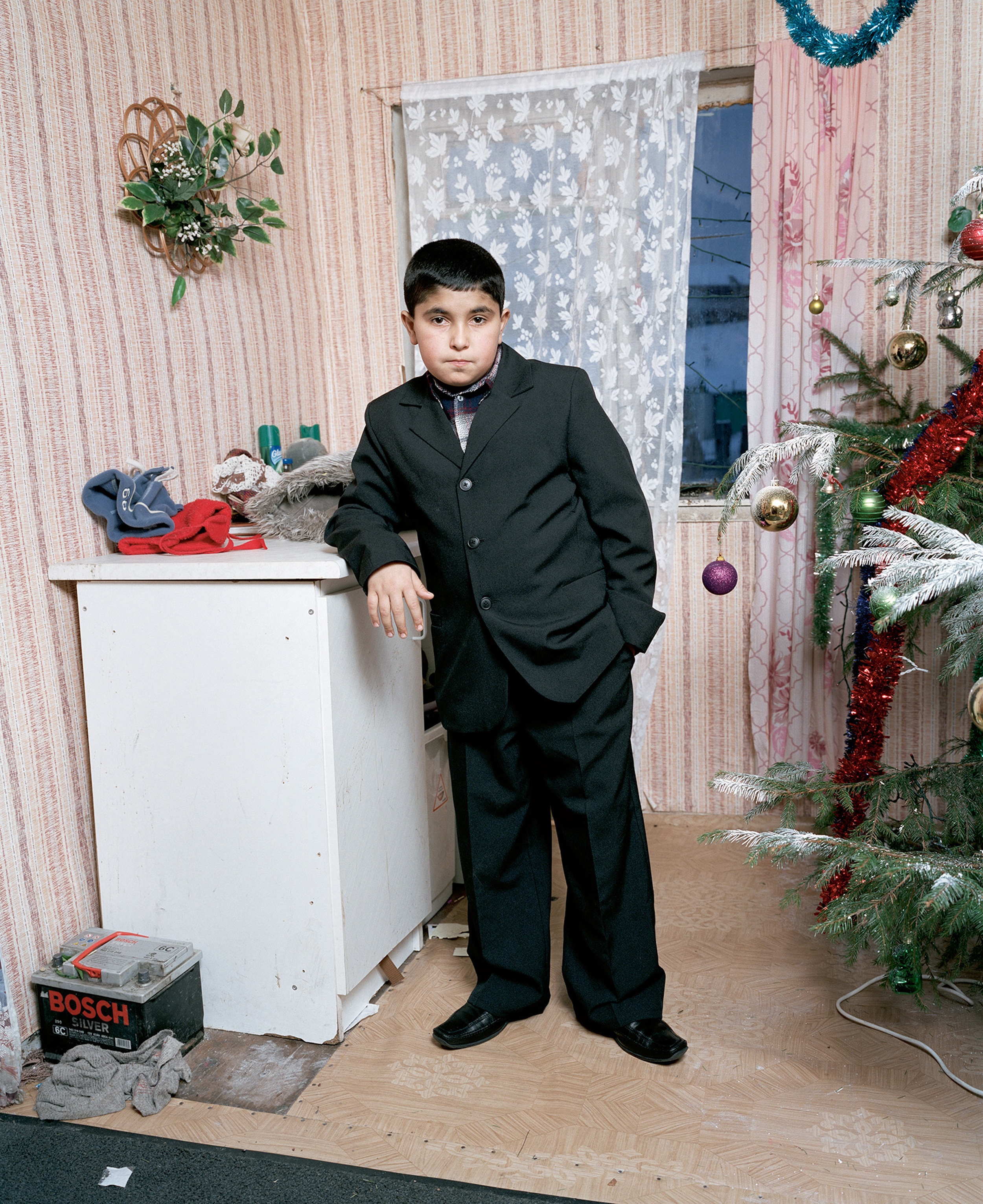
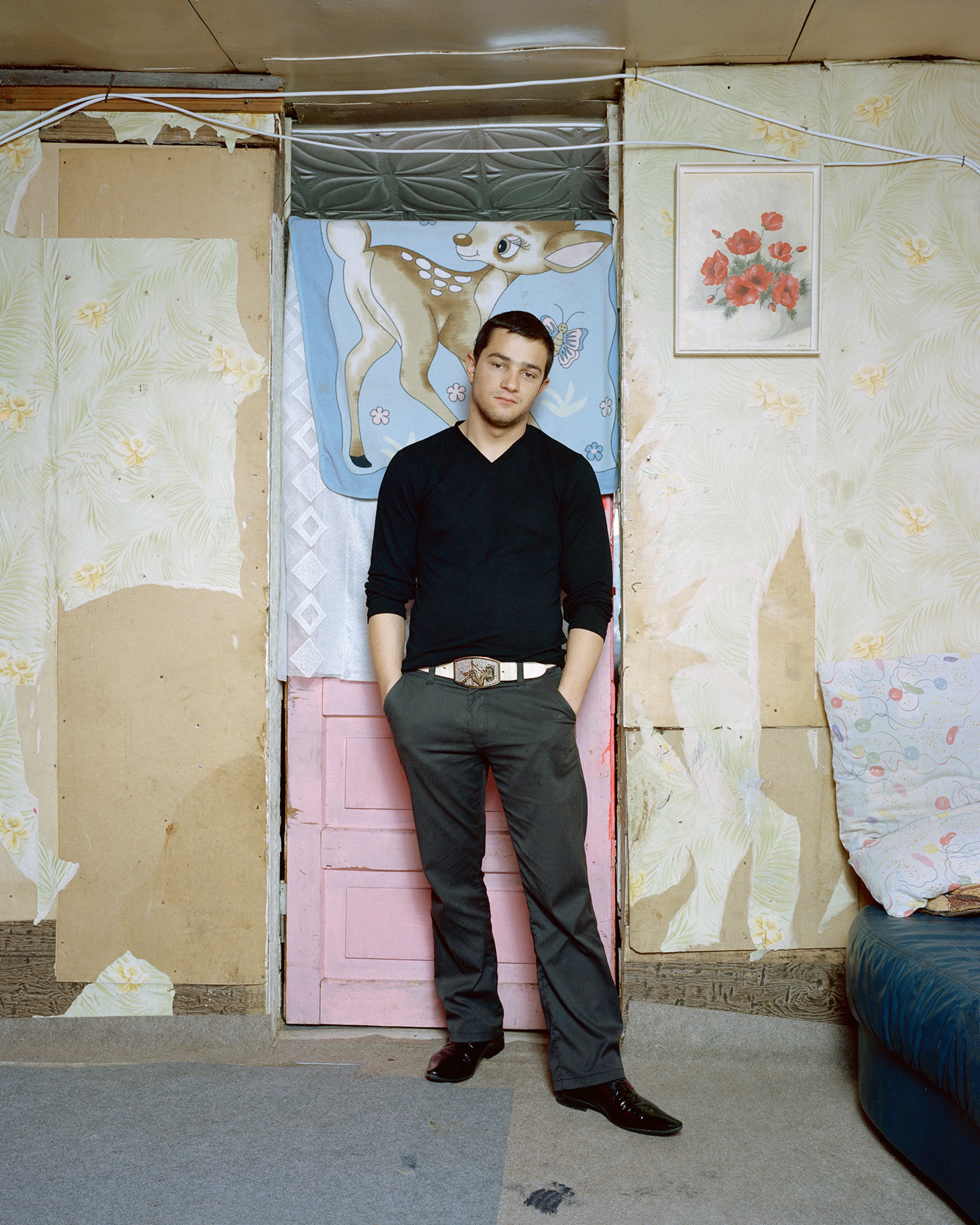
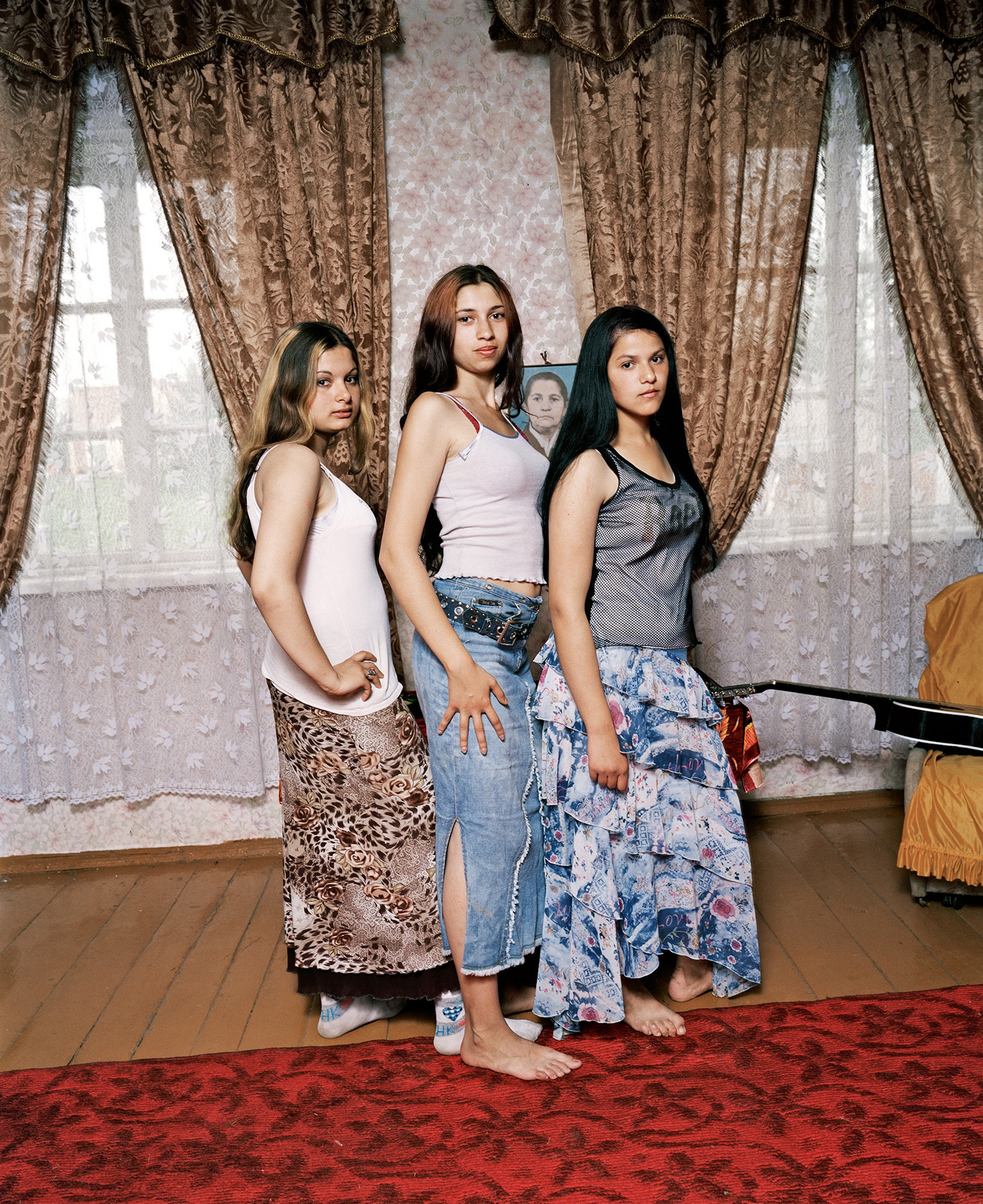
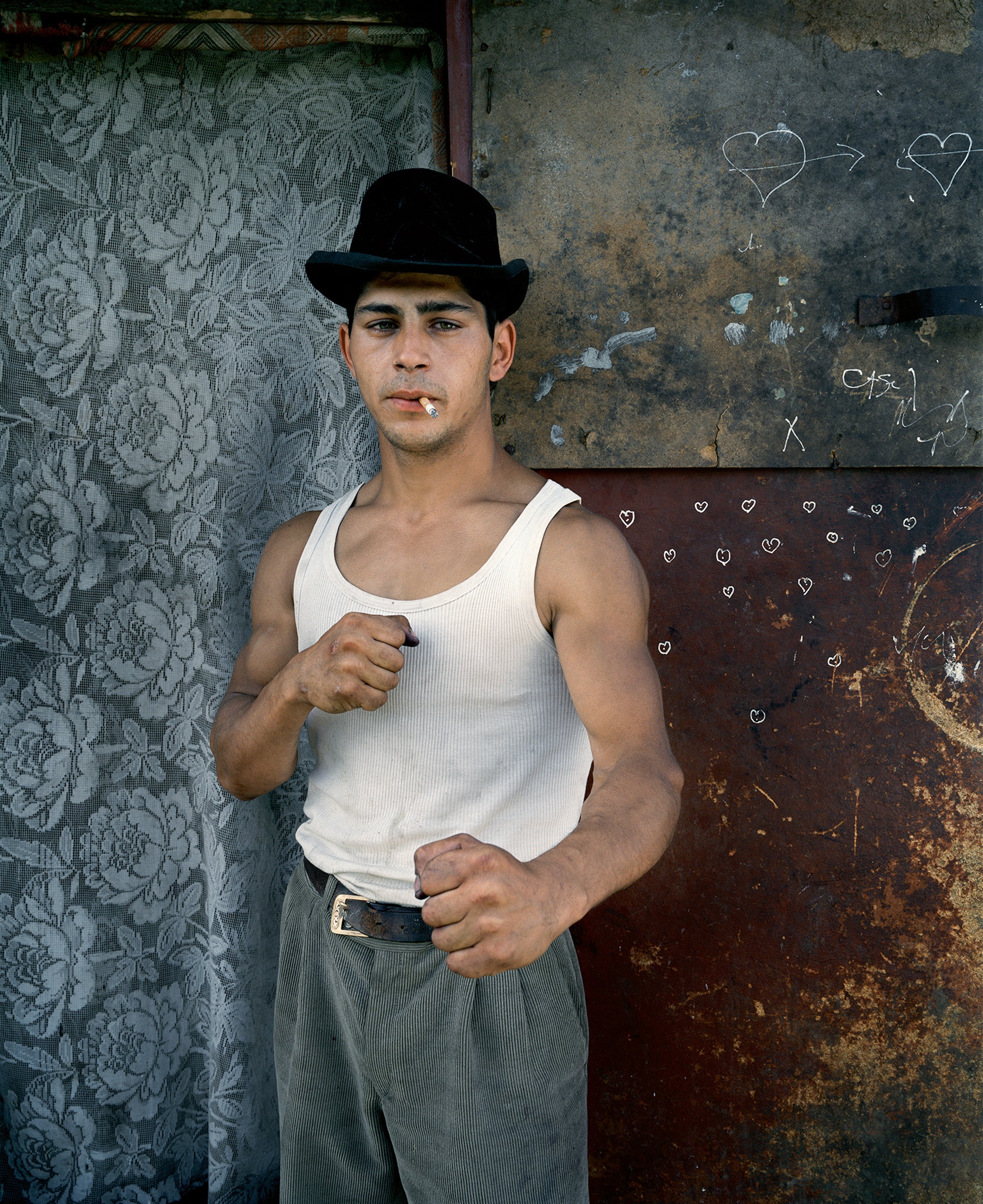
“With all my connections with the Roma community, we do everything together,” he says. “At the exhibitions, the openings, the closing parties, bands are playing, people are talking about everything. It’s important that they have that space.”
Representation – how and by whom it is made – has always been central to BAXT. In the beginning, Miksys spoke no Lithuanian, Russian, or Romani. Communication was mostly “sign language,” he laughs, or photographs themselves. “Larry Clark once told us, at school: photograph once, then bring a print back to people. It’s the best way to open doors.” The gesture proved crucial. “The Roma are a very oral culture,” Miksys explains. “Family history often survives only through photographs. So when I gave them pictures, they used them – put them in their homes, transformed them. Sometimes they’d even tear their page out of my book and hang it on the wall.”
Designed anew by Claudia Küssel in Düsseldorf, the book now adopts a vertical format and introduces unpublished photographs alongside essays and interviews with members of the Roma community. Its publication coincides with upcoming events, including one at The Photographers’ Gallery in London.
The BAXT book launch will take place at the Photography’s Gallery on 06 November, 6:30 – 8:00. A talk will be followed by a book signing in the Bookshop, with copies of BAXT and a limited number of rare, out-of-print copies of DISKO available.

